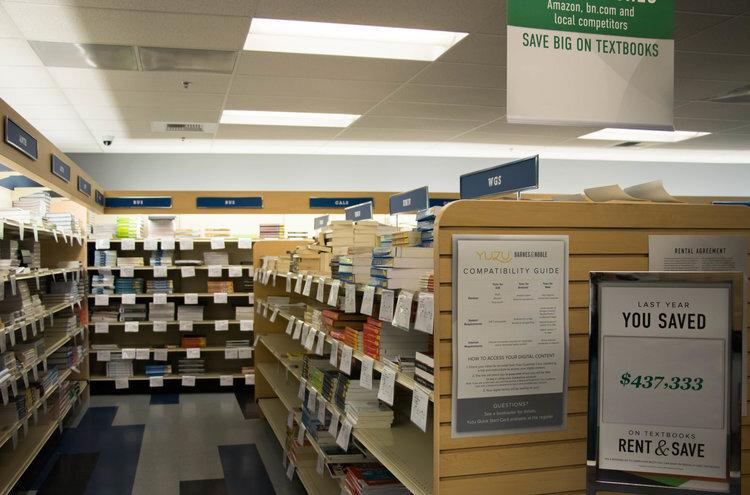Recently, in a class-action lawsuit filed in late Jan. 2020, four companies representing independent bookstores accused publishers including Pearson, Cengage, McGraw-Hill Education, and book store chains like Barnes & Noble and Follet for trying to push independent bookstores out of business.
For many years all across the nation, students had the ability to buy textbooks at a cheaper price by purchasing from off-campus bookstores, but current trends indicate that independent bookstores are closing while textbook prices rose 88% from 2006-2016, according to a Bureau of Labor Statistics report.
A court document for the class action lawsuit says the businesses “disguised their anti-competitive actions as technological advancements, but that was not their true purpose or effect. The conspiracy’s end goal and result is eliminating competitors and raising prices.”
The companies mentioned in the lawsuit say their inclusive access model maintains affordability for students, but the evidence presented in the complaint contradicts this argument.
According to Inside Higher Ed,: “Inclusive access programs, where students are automatically billed for their course materials, are increasingly big business for leading textbook publishers and college bookstores.”
Many college courses today require students to sign up for inclusive access models where the prices range from $50.00-$100.00, without giving students the opportunity to re-use old textbooks or purchase them at local college bookstores.
At Sonoma State, some courses require all access programs where students access homework, textbooks, and receive class participation credit.
The U.S. Department of Education regulations say that colleges should offer these materials below competitive market prices and must give students the opportunity to opt-out of all-inclusive programs.
In the recent lawsuit, the Plaintiff complains that “the ‘opt-out’ process, when there is one at all, is opaque, confusing and difficult if not impossible to execute.” They proceed to acknowledge that students who have requested to opt-out don’t have a choice because the entire course is dependent on it.
At Sonoma State, students have the chance to purchase their textbooks from the campus University Bookstore, which is run by Barnes & Noble College textbooks. The bookstores match pricing on books if they are at a cheaper cost on sites like Amazon but only if students request, and there are limited opportunities to get an access code from anywhere else.
In the past, Seawolves had the opportunity to purchase books from a local college textbook store that was across the street from campus in the Wolf Den plaza, North Lights Books and Gifts. Although the store is now out of business, it provided cheaper textbook prices to students.
Senior Karen Meraz said, “As a student, I cannot afford an additional cost that is mandatory to have to participate in the class.”
Nicole Allen, director of open education at SPARC states: “We’re on the verge of the textbook publishing industry becoming a duopoly, and you have to wonder how much worse it is going to get.”





![[Both photos courtesy of sonoma.edu]
Ming-Ting Mike Lee stepped in as the new SSU president following Sakakis resignation in July 2022](https://sonomastatestar.com/wp-content/uploads/2024/04/CC4520AB-22A7-41B2-9F6F-2A2D5F76A28C-1200x1200.jpeg)


























